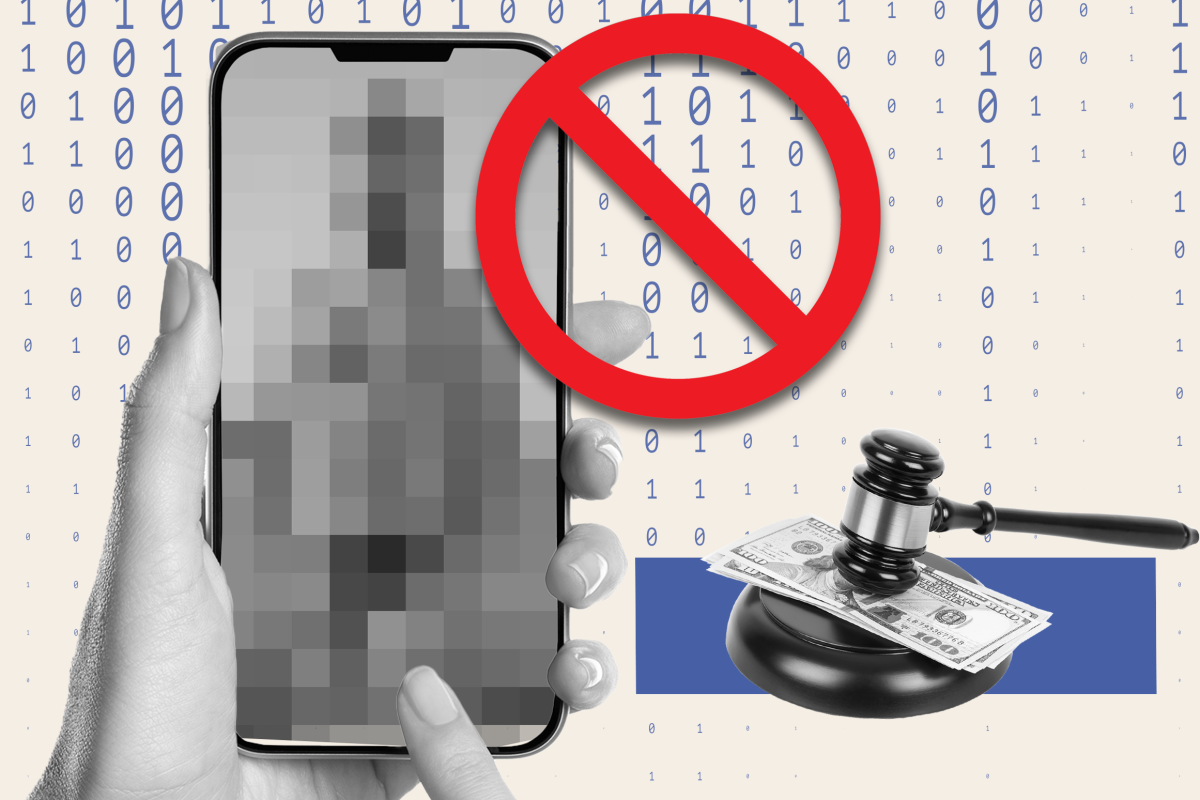A Congressional bill hopes to make it illegal to send unsolicited sexual images through texting, email or social media.
It would ban so-called "cyberflashing," in which people send explicit photos or videos of their genitals to victims.
"When someone flashes you on the street, they are arrested; however, when someone does it online, nothing happens—and that's unacceptable," Jennifer McClellan, one of the sponsors of the bipartisan bill, told Newsweek.
The Democrat congresswoman from Virginia said that the rise of artificial intelligence (AI) has made it easier for perpetrators to make manipulated sexual images that they then send to victims.
"With the widespread adoption of social media and dating apps and the rapid proliferation of artificial intelligence and machine learning, cyberflashing and other forms of online sexual exploitation are rising," McClellan said.
"As a mother to two young children, I am deeply concerned by the alarming rise in cyberflashing," she added.
McClellan introduced the bill on March 20 along with Nathaniel Moran, a Texas Republican. Two senators also sponsored the bill: Brian Schatz, a Democrat for Hawaii, and Steve Daines, a Montana Republican.
Their bill is the Curbing Online Non-consensual Sexually Explicit Nudity Transfers (CONSENT) Act.

According to a statement to go along with the introduction of the bill, cyberflashing includes "the transferral of sexually explicit images and videos without consent via social media, messaging apps, Wi-Fi, Bluetooth, and even AirDrop." AirDrop is a file transfer system often used on Mac computers and iPhones.
A previous survey by Pew Research found that over half of women aged 18 to 29 have received an unsolicited explicit image. Overall, 32% of women and 30% of men have been sent unsolicited sexual photos or videos.
In their statement, the bill's four sponsors said that the rise in cyberflashing has also "impacted celebrities like Keke Palmer and Chrishell Stause."
And they noted that "the Stanford Internet Observatory and Thorn found that AI technologies exacerbate online sexual exploitation and contribute to the creation of child sexual abuse material."
"Our digital landscape has become a breeding ground for online sexual harassment and exploitation," Congressman Moran said in a statement.
Senator Daines said in a statement that cyberflashing is "a disgusting act."
If the bill becomes law, a victim would receive statutory damages of not more than $500 or compensatory damages for emotional distress, reimbursement for reasonable attorney fees, "and a temporary restraining order to cease receiving sexually explicit images from the sender," according to the sponsors' statement.
It also allows a legal guardian to bring a civil action on a child's behalf.
Christian F. Nunes, president of the National Organization for Women, said in a statement that cyberflashing is "a shocking and distressing experience."
"It is time to cover up the rebranded version of the trench coat flasher," she said.
McClellan has already helped pass anti-cyberflashing legislation when she was elected to the state legislature.
As of July 1, 2022, it is illegal to send unsolicited sexually explicit images in Virginia, because of the law she and other Virginia lawmakers passed.
Former Congressman, Anthony Weiner was one of the most prominent cases of cyberflashing.
He was sentenced to 21 months in prison after pleading guilty in 2017 to transferring obscene material to a minor.
Update 03/31/24, 3:16 p.m. ET: This article was updated to clarify a statement by Daines
Uncommon Knowledge
Newsweek is committed to challenging conventional wisdom and finding connections in the search for common ground.
Newsweek is committed to challenging conventional wisdom and finding connections in the search for common ground.
fairness meter
To Rate This Article
About the writer
Sean O'Driscoll is a Newsweek Senior Crime and Courts Reporter based in Ireland. His focus is reporting on U.S. law. ... Read more
To read how Newsweek uses AI as a newsroom tool, Click here.








